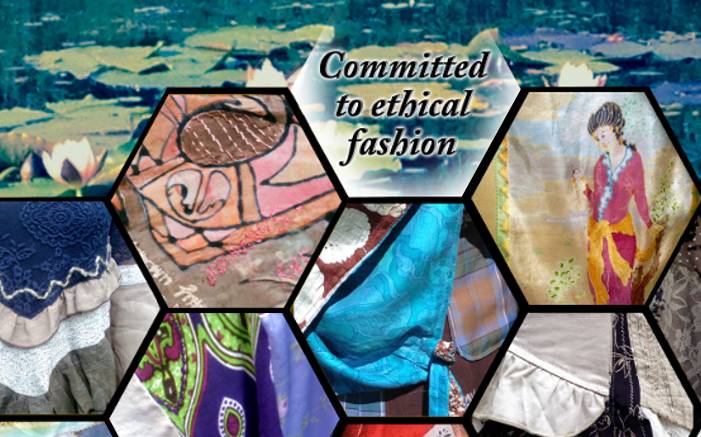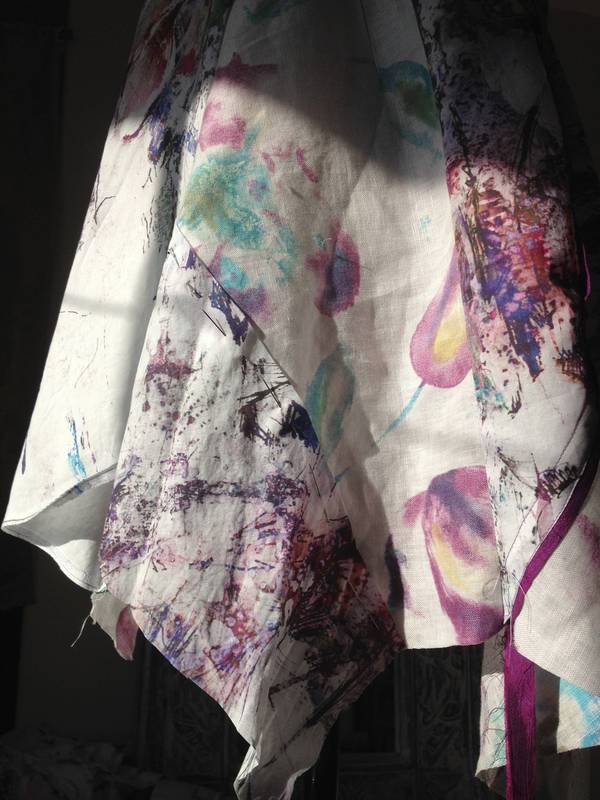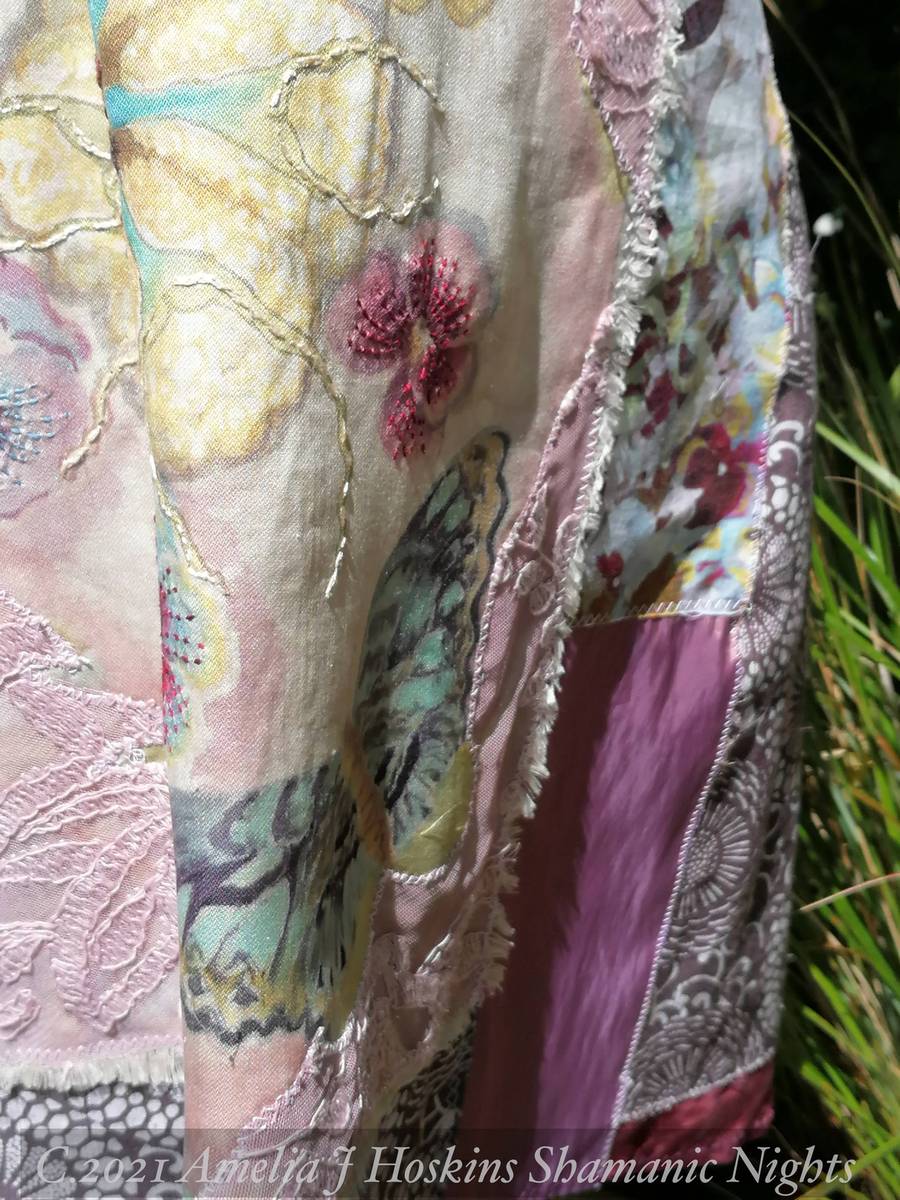FASCINATION WITH FABRIC COLOURS AND PRINTS continues to inspire my garment creations: unique, casual, sometimes luxurious: using textiles from recycled outlets.
In the fast fashion era, particularly with the manufacturing of jeans, vast quantities of textiles are produced, to satisfy changing demands and profiteering fashion manufacturers. Campaigns have been launched by the industry to draw attention to the issues: many evident in cotton producing countries: water usage, chemical usage, synthetic dye pollution, child labour.
I was one of the first 500 founding members of the Ethical Fashion Forum around 2010, which worked to promote ethically sourced fabrics from around the world.
Growing and Processing COTTON requires a LOT of water.
Whilst organic cotton has become popular, which avoids pesticide use, cotton itself requires a lot of water to grow and process. It takes 8,500 litres to make enough cotton for a pair of jeans, which is clearly unsustainable, even immoral, when many areas of the world suffer drought. The Aral Sea has dried up due to the over use of its water for Uzbekistan cotton growing.
White Gold – The TRUE COST OF COTTON
Many cotton garments; trousers, shirts, skirts are disposed in charity shops in UK. Linen clothes have become popular for cooler summer wear, and are wonderful to work with: one pair of trousers provides large pieces, as does a flared skirt.
Shamanic Nights makes a personal commitment to hand crafted 'slow fashion' and ‘Up-cycled couture’ which better describes my craft work, as each garment is very carefully hand made from cut up recycled clothes found in Devon Charity Shops. Results show how recycled textiles can still be beautiful, worthy and robust when discarded prematurely. Dresses and blouses provide prints and lace. I choose good quality cotton, linen, viscose and silk mostly, for summer dresses and kimono style robes.
Synthetic fibres like polyester are one of the worst inventions ever! They don't biodegrade for hundreds of years, and eventually leach their chemicals out of landfill.
So recycling of textiles is important to save landfill waste in western countries, where petrochemicals from polyester leach out into the earth and water courses. Consequently I am now aware of the wastage of polyester fabrics, and use polyester garments as linings for dresses and kimono style robes.


